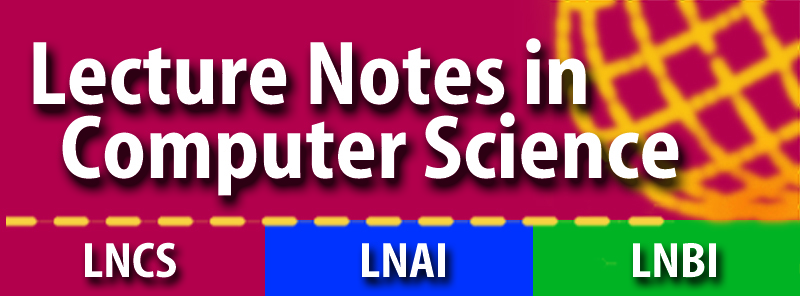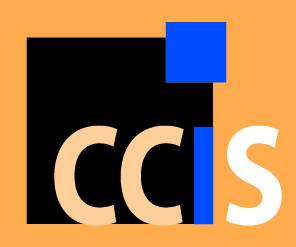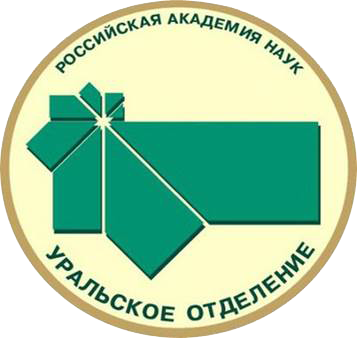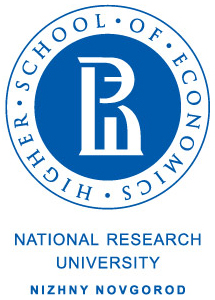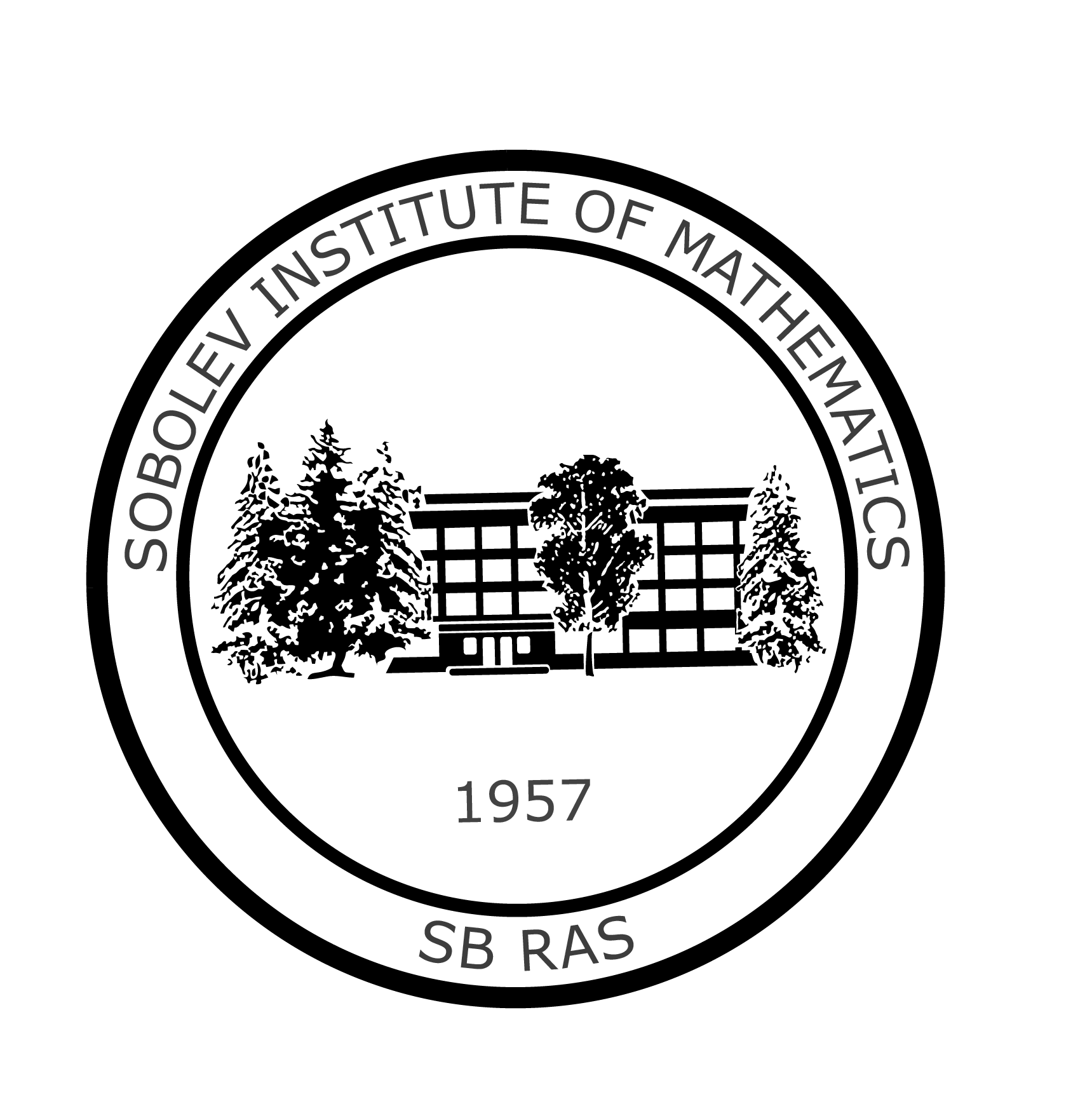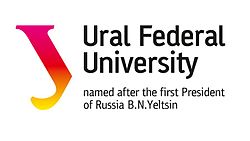THE NEWS
Young participants Best Papers Awards
Program Committee congratulates all the laureates and gently encourages them to contact to the conference chairs for details of receiving the financial part of their awards
Program Committee of MOTOR 2023, sponsored by  , is planning to present several Best Paper Awards for young researchers
, is planning to present several Best Paper Awards for young researchers
Dear colleagues.
Please, follow the 1st conference day guide
Please check your mailbox for the Equinocs email with Zoom links
Looking forward to meeting you next week!
With best regards, MOTOR2023 PC
Dear colleagues.
The registration for MOTOR 2023 is closed.
Looking forward to meeting you next week!
With best regards, MOTOR2023 PC
Dear colleagues.
The 1st volume of conference proceedings is published now. Please, follow the 4 weeks free access link.
With best regards, MOTOR2023 PC
Dear colleagues. The preliminary program is ready.
If you could not find your presentation or have any suggestions, please do not hesitate to contact us
With best regards, MOTOR2023 PC
Dear colleagues. Please take a look at the preliminary presentation lists.
By their topic, the presentations are groupped into 8 topical sessions. The lists are restricted to the presentations, whose authors submitted filled registration forms. If you cannot find your presentation or have any suggestions, please do not hesitate to contact us
With best regards, MOTOR2023 PC
Dear colleagues. On behalf of the Organizing committee, we would like to kindly remind you, that all the participants are invited to book a room on their own.
Please, find some advices on the booking procedure and the info on the near-by hotels, at the section "Venue" .
Thank you
Dear colleagues. Less than a month left to our meeting at the MOTOR 2023 conference. It's time to sum up the first results of the registration procedure
By tradition, we include to the scientific problem the presentations,
Please, find the current presentations list here
If you cannot find your presentation, please, do not hesitate to contact PC chairs.
Thank you
Dear Participants. Early bird registration deadline May, 15 will be passed soon.
All the participants, who submitted their abstracts, are invited to register. Registration is is the only remaining step to inclusion your presentation into the conference technical program. Thank you.
ABOUT THE CONFERENCE
22nd International conference “Mathematical Optimization Theory and Operations Research” (MOTOR2023) http://motor2023.uran.ru will be held on July 2-8, 2023, in Ekaterinburg, the capital of Urals, Russia, at the borderline between Europe and Asia.
This conference is dedicated to the 90th anniversary of acad. I.I. Eremin.
The conference brings together a wide research community in the fields of mathematical programming and global optimization, discrete optimization, complexity theory and combinatorial algorithms, optimal control and games, and their applications in relevant practical problems of operations research, mathematical economy, and data analysis.
Important dates
February 5, 2023
March 5, 2023
April 5, 2023
April 23, 2023
Call for papers
http://motor2023.uran.ru/docs/Cfp.pdf
Paper / abstract submission is open now!
https://equinocs.springernature.com/service/MOTOR2023
Previous events
Conference name
Dates
Venue
Proceedings
MOTOR conference series is a descendant of a number of well-known International and All-Russian conferences, which were held in Ural, Siberia, and the Far East for a long time:
Conference name
Since
# in series
Last event
Baikal International Triennial School Seminar on Methods of Optimization and Their Applications, BITSS MOPT
1969
17
Discrete Optimization and Operations Research, DOOR
1996
9
MAIN TOPICS
- mathematical programming
- ill-posed and improper optimization problems
- global optimization
- integer programming and combinatorial optimization
- computational complexity, approximation algorithms, schemes, bounds, heuristics and metaheuristics
- optimal control and game theory
- optimization and approximation
- optimization in machine learning and data analysis
- applications in operations research: scheduling, routing, facility location, packing and cutting, manufacturing systems, etc.
COMMITTEES
Honorary Chairs
General Chair
Program Committee Chairs
Program Committee
Organizing Committee
INVITED SPEAKERS
Plenary lectures
Corresponding member of NAS of Azerbaijan, Prof. Kamil Aida-Zade (joint work with Dr. Samir Guliyev)
Institute of Control Systems, Baku,
Azerbaijan
Feedback control on the class of zonal control actions
Abstract: We propose an approach to feedback control for both nonlinear objects with lumped parameters and point sources of objects with distributed parameters. The approach lies in the fact that the entire set of possible phase states of an object is divided into a finite number of zones (subsets), and the synthesized controls are determined not by the measured state values themselves, but by the zonal values of the zone parameters to which belong the current measured object states. We have obtained necessary optimality conditions for the zonal values of the feedback parameters, carried out computational (computer) experiments on some test problems of feedback control both for objects with lumped parameters and for distributed parameters.
Prof. Mario R. Guarracino
Higher School of Economics, Russia and Università degli Studi di Cassino, Italy
Semi-supervised Learning with Depth Functions
Abstract: Depth functions have been exploited in supervised learning since years. Given that the depth of a point is somehow a distribution-free measure of its distance from the center of a distribution, their use in supervised learning arose naturally and it has seen a certain degree of success. Particularly, DD-classifers and their extensions have been extensively studied and applied in many applied fields and statistical settings. What has not been investigated so far is their use within a semi-supervised learning framework. That is, in case some labeled data are available along with some unlabeled data within the same training set. A case which arises in many applications and where it has been proved that combining information from labeled and unlabeled data can improve the overall performance of a classifier. For this reason, this work aims at introducing semi-supervised learning techniques in association with DD-classifiers and at investigating to what extent such technique is able to improve DD-classifier performances. Performances will be evaluated by means of an extensive simulation study and illustrated on some real data sets.
Prof. Milojica Jaćimović
University of Montenegro
Strong convergence of extragradient-like methods for solving quasi-variational inequalities
Abstract: The goal of this talk is to study convergence of approximation methods for quasi-variational inequalities with the moving set. First, we propose the extragradient dynamical system and under strong monotonicity we show strong convergence with exponential rate of generated trajectory to the unique solution of quasi-variational inequality. Further, the explicit time discretization of this dynamical system leads to an extragradient algorithm with relaxation parameters. We prove the convergence of the generated iterative sequence to the unique solution of the quasi-variational inequality and derive the linear convergence rate under strong monotonicity.
Prof. Pinyan Lu
Institute for Theoretical Computer Science, Shanghai University of Finance and Economics,
China
Algorithms for Solvers: Ideas from CS and OR
Abstract: The MIP/LP solvers are primarily developed by the operations research community while SAT/SMT solvers are primarily developed by the computer science community. However, these problems are closely related with each other. In recent years, there have been many attempts to combine the algorithmic techniques of both sides to develop better solvers. In this talk, I will discuss about these and our attempts and try to provide a unified perspective and framework.
Prof. Panos Pardalos
University of Florida, Gainesville, FL,
United States
Artificial Intelligence, Smart Energy Systems, and Sustainability
Abstract: Distribution systems face significant changes due to the growing number of distributed and variable energy generation resources and the smart grid implementation. The traditional design paradigm can no longer meet the need for greater resilience, power quality, and customer participation. On the other hand, smart grid implementation brings a large amount of data that can be used to better plan a distribution system. Growing energy demand and limited investment capital make distribution system planners look to these advances in smart grid technology to identify new approaches to achieve load reliability. When planning a distribution system, the main goal is to meet the most economically and reliably timed demand growth. The planning methodology must ensure that every opportunity for savings or power quality improvement is exploited. This is not a straightforward task, even in traditional systems, since the distribution networks are usually large in extension, with a large amount of data to be analyzed. In addition, new regulations from authorities and the modernization of power systems highlight the importance of a constant update and improvement of methodologies and planning techniques. The ongoing changes bring enormous opportunities and challenges to traditional and new players requiring huge planning and operation methods changes. With more and innovative players entering the sector, artificial intelligence-based approaches can be the key to dealing with the new challenges and ensuring the systems and the respective players' sustainability, both in economic and environmental terms. The drive to make utilities more efficient through AI, machine learning, and data science has resulted in major benefits for every actor in the energy sector, including generators, distributors, the environment, taxpayers, and consumers.
Prof. Eugene Semenkin
Reshetnev Siberian State University of Science and Technology (SibSU), Krasnoyarsk,
Russia
Hybrid evolutionary optimization: how self-adapted algorithms can automatically generate applied AI tools
Abstract: When designing AI tools or machine-learning models, one must make multiple choices: which approach should be used, which structure of model is more appropriate for the problem in hand and which settings and parameters must be applied. All of these choices are mathematically reduced to some kind of optimization problem. In fact, one has to solve multi-criteria multi-dimensional multi-scale “black box” optimization problems with algorithmically-given objectives and/or constraints. Bio-inspired algorithms, e.g. evolutionary algorithms (EAs), could be used for solving the described problems. However, the effectiveness and efficiency of EAs depends essentially on the choice of their settings and the tuning of their parameters, which is a separate and very complicated decision-making problem. An EA with appropriate settings and parameters can be very effective, but in the opposite case, this algorithm can fail. Moreover, such a useful property of EAs as their universality (their independence from the properties of the problem), which allows them to be used in solving the widest class of optimization problems, means that it is impossible to use properties of problems convenient for optimization (such as convexity, monotony and unimodality) in cases where such properties exist in the problem being solved. The approach that will be discussed in the lecture allows us to simplify the use of EAs and other bio-inspired algorithms by means of the self-configuration, coevolution and hybridization of EAs with problem-specific algorithms. Details of the approach will be described, and examples of approach deployment in the automated design of AI-tools will be given.
Prof. Yaroslav D. Sergeyev
University of Calabria, Rende,
Italy
Numerical infinities and infinitesimals in optimization
Abstract: In this talk, a recent computational methodology is described. It has been introduced with the intention to allow one to work with infinities and infinitesimals numerically in a unique computational framework. It is based on the principle ‘The part is less than the whole’ applied to all quantities (finite, infinite, and infinitesimal) and to all sets and processes (finite and infinite). The methodology uses as a computational device the Infinity Computer (a new kind of supercomputer patented in several countries) working numerically with infinite and infinitesimal numbers that can be written in a positional system with an infinite radix. On a number of examples (numerical differentiation, divergent series, ordinary differential equations, fractals, set theory, etc.) it is shown that the new approach can be useful from both theoretical and computational points of view. The main attention is dedicated to applications in optimization (local, global, and multi-objective). The accuracy of the obtained results is continuously compared with results obtained by traditional tools used to work with mathematical objects involving infinity. The Infinity Calculator working with infinities and infinitesimals numerically is shown during the lecture.
Full member of RAS, Prof. Alexander Shananin (together with Dr. Natalia Obrosova)
Moscow State University, Moscow
Russia
General equilibrium models in production networks with substitution of inputs
Abstract: The developed countries made a transition from intensive to extensive growth in 1980s, that led to goods and services range extension. Related changes in the technologies during the economic globalization caused supply chains sophistication and complex production network development in local and global economies. The problem of sustainable development of regional economies while supply chains was localized raised due to latest pandemic and sanction economic shocks. Proper tools are needed to describe modern production networks taking into account the substitution of inputs. Traditional interindustry balance method based on the Leontief linear model and nonnegative matrices theory should not be used due to its base assumption of the constancy of direct requirement coefficients in a supply network. Modern methods demand new mathematical tools that reflect substitution of inputs in complex production networks. Tools presented by authors developed on the results of the analysis of the resource allocation problem with positively homogeneous neoclassical production functions and the dual problem which solutions are the price indexes of intermediate inputs. The way of problem studying is based on the construction of the Young dual transform for equilibrium price indexes. It is proved that in the case of CES technologies with constant elasticity of substitution (Cobb-Douglas in particular) resource allocation problem has an explicit solution. In this case the comparative statics method based on the official national accounts statistics is developed by authors. Method allows in a middle-term to forecast intersectoral links under given scenarios of the internal or external shocks taking into account the substitution of inputs. The point of the method is solving the inverse problem of nonlinear balance identification and further verification of the model on the base of the official input-output tables statistics. By that the elasticities of substitution of intermediate inputs are the verification parameters of the model. The method was successfully tested on the input-output tables statistics of Russia and Kazakhstan. Applications to the analysis of the intersectoral links of several countries with different levels of market relations maturity demonstrated that in the case of decentralized economy the nonlinear balance with Cobb-Douglas production functions gives more precise forecast than traditional linear Leontief model approach.
Prof. Predrag S. Stanimirović
University of Niš, Faculty of Sciences and Mathematics, Niš
Serbia
Optimization methods in gradient and zeroing neural networks
Abstract: The topic of our lecture is a class of recurrent neural networks (RNN) dedicated to find- ing zeros of equations or minimizing nonlinear functions. Optimization RNN models are divided into two global classes: Gradient Neural Networks (GNN) and Zhang Neural Net- works (ZNN). GNN models are aimed at solving time-invariant problems, while ZNN models are able to solve time-varying problems. The design of GNN and ZNN models arises from the choice of an appropriate error function. ZNN dynamics is a certain dynamical system whose states evolve over a state space continuously based on the time derivative of the error function. Some new error functions resulting from nonlinear gradient-descent and quasi- Newton optimization methods are presented. A modification of ZNN dynamical evolution based on higher-order hyperpower iterative methods is described. We discuss the prob- lems of non-differentiability and division by zero (DBZ) which appear relatively frequently in time-varying dynamical systems. The GNN design is defined as a movement along the negative gradient of the Frobenius norm of the error function inside the time interval. Mod- ifications of the GNN flow based on gradient-descent and conjugate-gradient optimization methods are considered. In general, dynamical systems are defined as continuous-time analogies of known nonlinear optimization algorithms, such as the class of gradient-descent algorithms or various quasi-Newton method for solving nonlinear optimization problems. The convergence of various modified dynamical systems aimed to solving time-varying ma- trix equations are investigated.
Corresponding member of RAS, Prof. Vladimir V. Vasin
Krasovsky Institute of Mathematics and Mechanics, Ekaterinburg,
Russia
Iterative processes of Fejér type for quadratic optimization problem
Abstract: This lecture presents a short overview of iterative solution methods of Fejér type for the well-known quadratic constrained optimization problem, which were introduced and widely studied by acad. I.I. Eremin - the founder of the Ural mathematical programming school. Along with common quadratic programs, we consider several variants of the basic problem, which have numerous applications. We point attention to some special settings of the problem in question including metric projections, linear programming, etc., which are of separate interest. Fejér-type methods adopt interest of specialists on numerical optimization, since, along with convergence, one can prove conditions of their stability to small perturbations of input data. Thus, these methods induce self-regularizing algorithms, unlike some well-known primal numerical optimization techniques (see, e.g. the classic book by C.T.Lawson, R.J.Hansen, 1995).
Industrial talks
Dr. Mikhail Krasilnikov
BIA Technologies, Moscow,
Russia
The principles of development and implementation of decision making software solutions in LTL-company
Abstract: This talk will shine a spotlight on the challenges software developer faces when applying Operations Research methods in the development and implementation of software solutions. Typically, large transportation companies consist of a number of branches, including production (those who own vehicles), sales (those who sell company services and must know what prices will be set for each individual type of vehicle and each destination), and marketing (those who manage demand by setting up special offers and discounts). The process of operations planning for different branches is interconnected. As a result, the company needs a planning system on both the department and global levels. Planning is required over different time horizons, interdepartmental planning often has a greater planning horizon. The development of these systems has a multitude of complex requirements. This talk will touch upon the implementation of a few systems, one of which—last-mile planning is a multi-depot vehicle routing problem with time windows. Another problem that is going to be discussed is assigning a vehicle to a transportation request, which in an essence is the assignment problem. Implementation steps, infrastructure, and algorithm requirements will also be explored. The challenges of implementation are important to mention since the automated planning process is different from what end-users are used to, so a level of trust has to be achieved. Finally, we will talk about possible ways to further the progress of implementation of these technologies into a real-world context, for example, by means of open source projects.
PAPER SUBMISSION
Authors are invited to submit their papers reporting on novel results that are not published or submitted simultaneously to any journal or another conference with refereed proceedings. Papers should be prepared in the Springer LNCS Format, can have 12-15 pages, and submitted in PDF. Please, follow the official Springer authors guidelines.
All papers should be submitted through the Springer EquinOCS conference management system.
Abstracts
Book of abstracts is published now. Please, find its PDF-version here
Proceedings
Conference proceedings will be published by Springer Nature as volumes of Lecture Notes in Computer Science (LNCS) and Communications in Computer and Information Science (CCIS) series.
Volume 1: Lecture Notes in Computer Science
published by Springer in LNCS, Vol. 13930
https://link.springer.com/book/10.1007/978-3-031-35305-5
Invited paper
Accepted papers
Corresponding authors of the papers accepted to LNCS are invited, by April 23, 2023, to upload to the EquinOCS system camera-ready versions of their papers supplemented with answers to the reviewers' comments and scans of the filled and signed copyright form.
Personal notifications with reviews and detailed instructions will be sent soon, by the EquinOCS.
Volume 2. Communications in Computer and Information Science
published by Springer in CCIS, Vol. 1881:
https://link.springer.com/book/10.1007/978-3-031-43257-6
Invited paper
Recommended papers
Corresponding authors of the papers recommended for publication in CCIS are invited, by May 28, 2023, to upload to the EquinOCS system camera-ready versions of their papers supplemented with answers to the reviewers' comments and scans of the filled and signed copyright form.
Personal notifications with reviews and detailed instructions will be sent soon, by the EquinOCS.
REGISTRATION FEES
Registration is CLOSED
THE VENUE
The conference will be held at "Oktyabrskaya" hotel , Ekaterinburg, Russia. The hotel is located in the walking distance of Institute of Mathematics and Mechanics (IMM), Ural Branch of the Russian Academy of Sciences.
The "Oktyabrskaya" hotel offers exclusive rates to the participants of the MOTOR 2023 conference. To get a discount, book a room by e-mail bron@hotel-okt.ru with the subject "MOTOR Conference".
The cost of a standard room is 4000 rubles per night for single occupancy, 4500 rubles for double occupancy, breakfast is included.
Due to the upcoming Innoprom exhibition, an increased demand for hotels in Yekaterinburg is expected, we kindly ask participants to book in advance.

